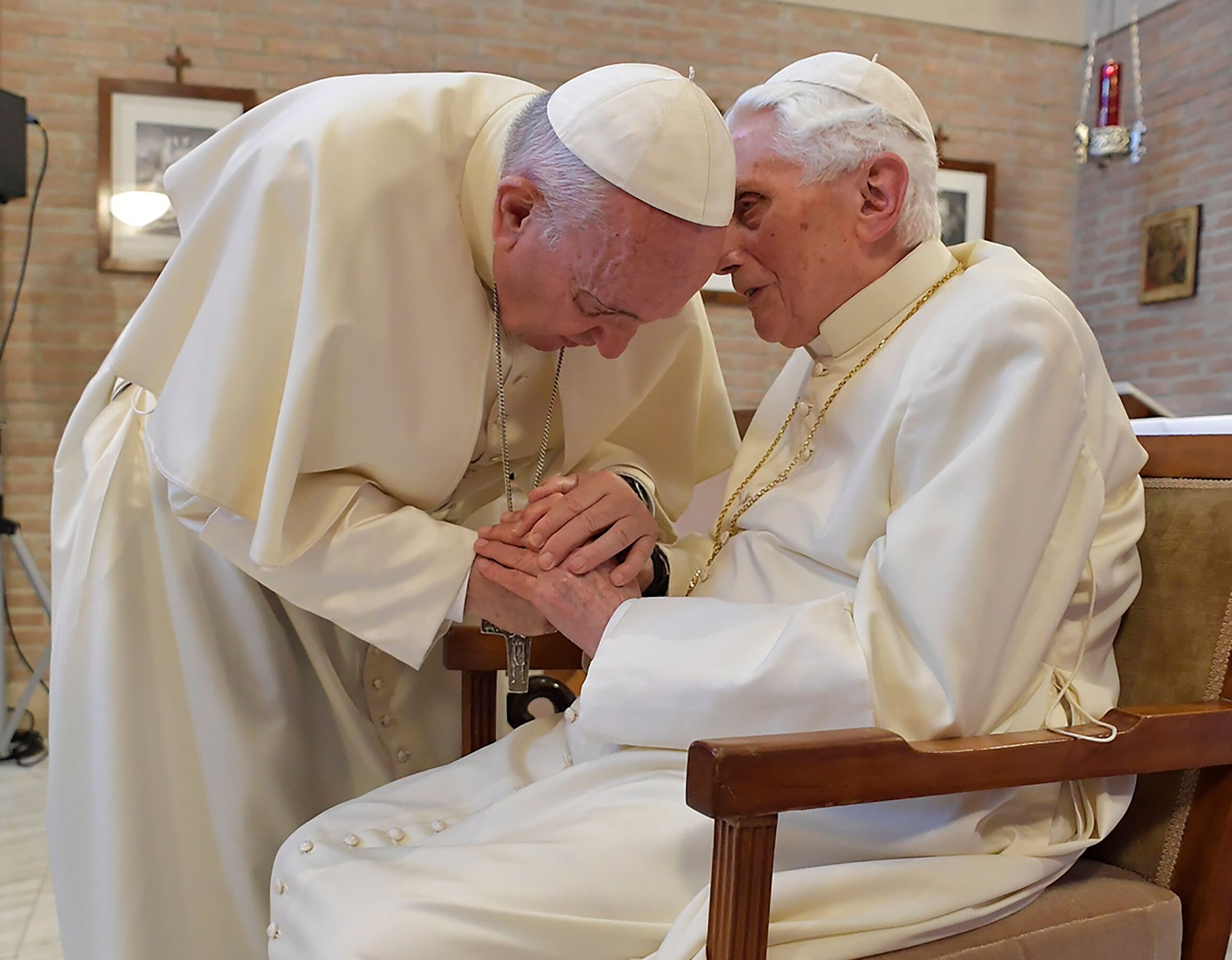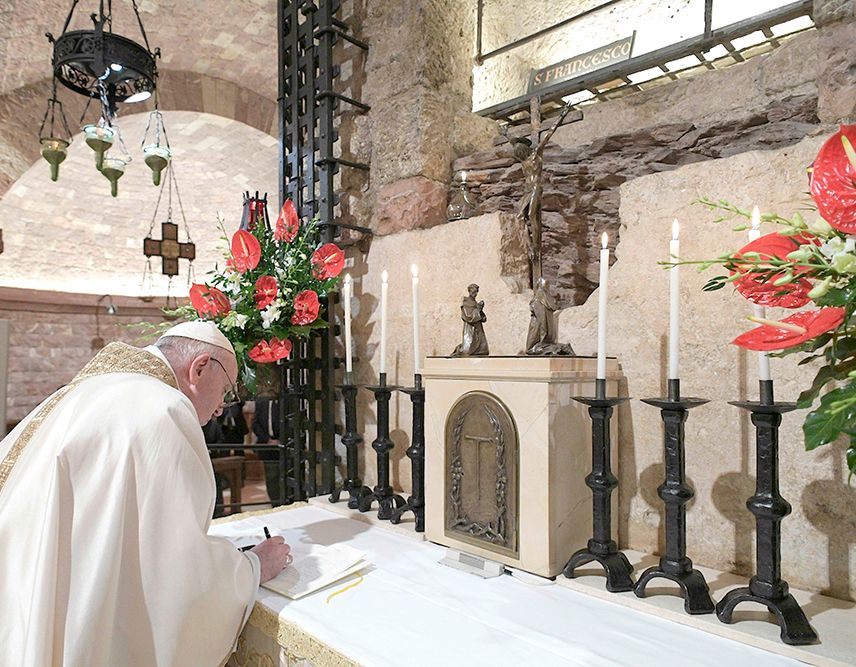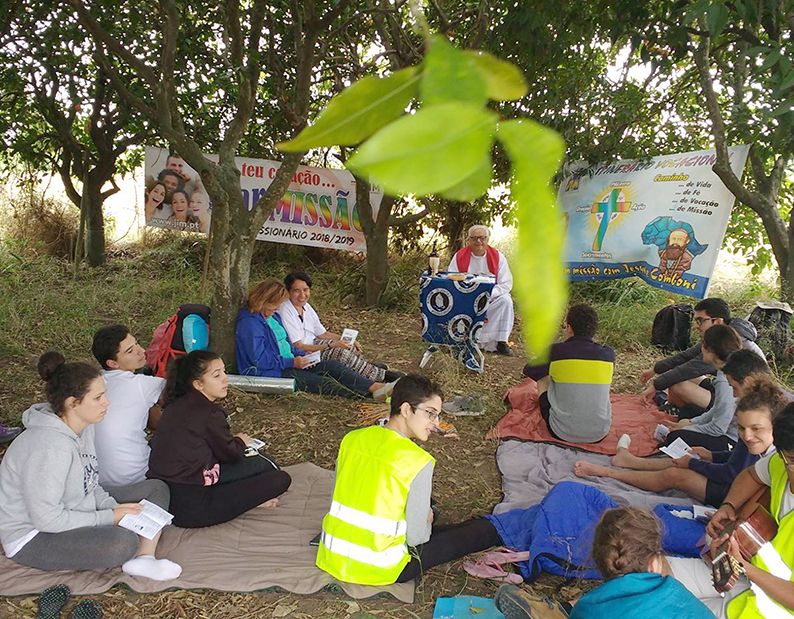Francis says: “I dream of a ‘missionary option,’ that is, a missionary impulse capable of transforming everything” (EG, n. 27). He asserts: “All renewal in the Church must have a mission as its goal if it is not to fall prey to a kind of ecclesial introversion” (EG, n. 27). He believes: “Missionary outreach is paradigmatic for all the Church’s activity” (EG, n. 15).
One may validly assert that this document summarizes the pope’s theology, spirituality, and vision of pastoral-missionary ministry. His desire that the Church be “permanently in a state of mission” (EG, n. 25) comes from his deeply personal relationship with Christ and he invites “all Christians, everywhere, at this very moment, to a renewed personal encounter with Jesus Christ” (EG, n. 3).
A pivotal insight of Francis is that “we are all missionary disciples” (EG, n. 119); “we no longer say that we are ‘disciples’ and ‘missionaries,’ but rather that we are always ‘missionary disciples’” (EG, n. 120). “Missionary disciples accompany missionary disciples” (EG, n. 173). Evangelizers’ lives must “glow with fervor” since they have received “the joy of Christ” (EG, n. 10).
Pope Francis reveals his sense of humor at several points. He notes that unfortunately, “there are Christians whose lives seem like Lent without Easter” (EG, n. 6). “An evangelizer must never look like someone who has just come back from a funeral” (EG, n. 10). We must not become “querulous and disillusioned pessimists, ‘sourpusses’” (EG, n. 85).
In EG, Pope Francis makes following Jesus as his disciple an attractive invitation; this holds true because “being a Christian is not the result of an ethical choice or a lofty idea, but the encounter with an event, a person, which gives life a new horizon and a decisive direction” (EG, n. 8); cf. Benedict XVI.
Francis recognizes numerous mission challenges; yet, he remains realistically optimistic, asserting: “Challenges exist to be overcome! Let us be realists, but without losing our joy, our boldness, and our hope-filled commitment. Let us not allow ourselves to be robbed of missionary vigor” (EG, n. 109)!
Ten Missionary Signposts
Evangelii Gaudium overflows with profound wisdom for Christian living and witness; this author now identifies pivotal, thematic insights which will contribute to renewing the missionary fervor of the Church.
1. Missionaries as Christ-centered Persons. Mission demands a “personal encounter with the saving love of Jesus.” …The primary reason for evangelizing is the love of Jesus which we have received, the experience of salvation which urges us to ever greater love of him” (EG, n. 264).
2. Joy as a Pivotal Sign of Missionary Disciples. Joyful evangelizers will contribute to the successful propagation of the Gospel. With heartfelt emotion, Pope Francis writes: “I wish to encourage the Christian faithful to embark upon a new chapter of evangelization marked by this joy” (EG, n. 1).
3. Integrating Vatican II Perspectives. Francis asserts that “it is important to draw out the pastoral consequences of the Council’s teaching” (EG, n. 38) for the worldwide mission today.
4. Centrality of Mission in Church Life. Francis constantly promotes an active missionary Church; as noted earlier, he proclaims that “missionary outreach is paradigmatic for all the Church’s activity” (EG, n. 15).
5. A Dynamic, Outgoing Church. “I prefer a Church which is bruised, hurting, and dirty because it has been out on the streets, rather than a Church which is unhealthy from being confined and from clinging to its own security” (EG, n. 49).
6. Mercy is Central. “The Church must be a place of mercy freely given, where everyone can feel welcomed, loved, forgiven, and encouraged to live the good life of the Gospel” (EG, n. 114).
7. Social Involvement in Evangelization. “Our faith in Christ, who became poor … is the basis of our concern for the integral development of society’s most neglected members” (EG¸ n. 186).
8. Popular Piety, a Vehicle of Evangelization. “Popular piety enables us to see how the faith, once received, becomes embodied in a culture and is constantly passed on” (EG, n. 123).
9. Dialogue in Evangelization. Within a larger section on dialogue, Francis treats both ecumenical dialogue (EG, n. 244-249) and interreligious dialogue (EG, n. 250-254).
10. World-wide Vision. Undoubtedly, Pope Francis exhibits a broad vision of an evangelizing, collegial, and synodal Church, citing insights from numerous episcopal conferences from all across the world.
Francis has issued a call for a missionary renewal of our Church; he is echoing the Second Vatican Council, which asserted that “the pilgrim Church is missionary by her very nature” (Ad Gentes, n. 2). Let us joyfully heed Francis’ heartfelt, personal invitation to become truly alive in mission!
Father James H. Kroeger, a Maryknoll Missioner, has served missions in Asia (the Philippines and Bangladesh) since 1970, working in parishes and serving mostly in the education-formation apostolate of seminarians, religious, catechists, and lay leaders. He has produced numerous theological-missiological-catechetical books. His most recent books include Go, Teach, Make Disciples, and Exploring the Priesthood with Pope Francis.





























